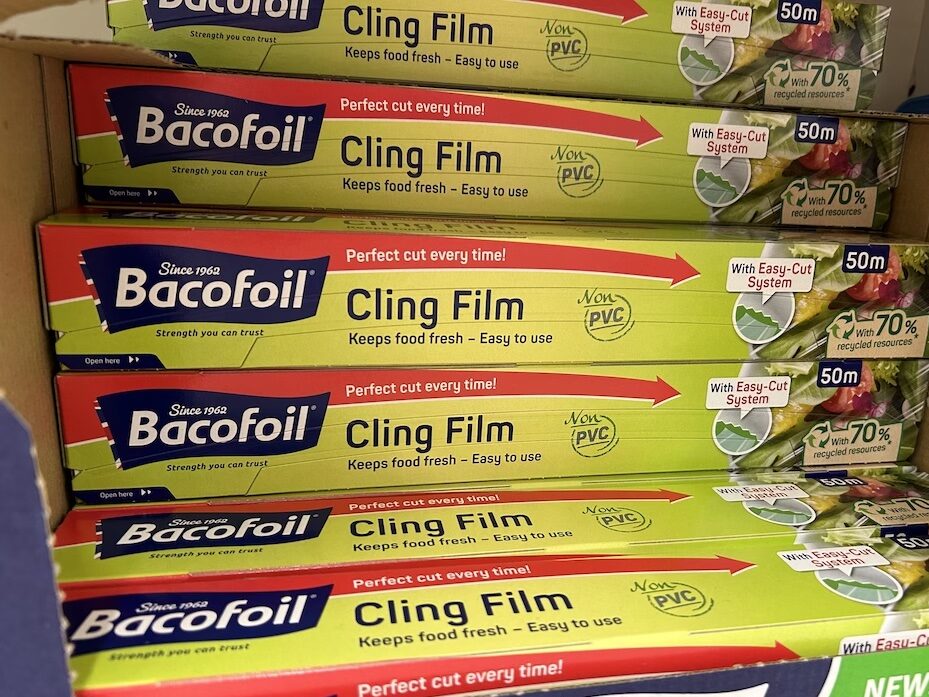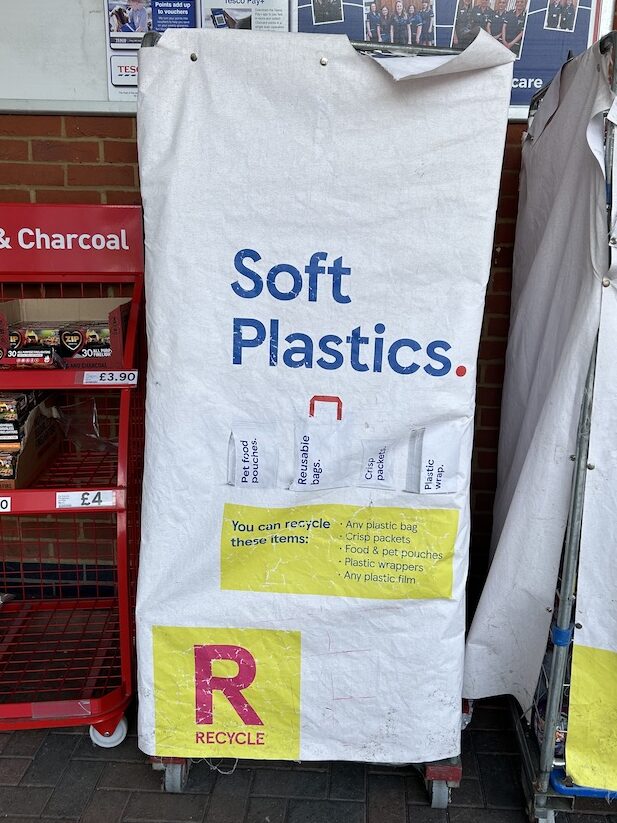In today’s world, plastic waste has emerged as a critical environmental issue, with millions of tons of plastic ending up in landfills and released into the environment. Every year, 10 million tons of plastic enter our oceans and aquatic ecosystem. If current trends continue, by 2050 there will be more plastic in the oceans than there are fish (by weight). The kitchen, in particular, is a hotspot for plastic waste, from single-use packaging to disposable utensils. However, by making a few simple changes to our daily routines, we can significantly reduce our plastic footprint and help protect the planet. In this article, we’ll explore 10 easy ways to reduce plastic waste in your kitchen, from shopping smarter to adopting eco-friendly alternatives.
Here is a quick overview of the 10 easy ways:
- Shopping Consciously
- Visit Local Markets and Zero-Waste Shops
- Ditch Plastic Clingfilm and Food Bags
- Less Ready Meals, More cooking
- Invest in Durable Plastic-free Kitchenware
- Avoid Cleaning Supplies Containing Plastic
- Make Homemade Cleaner
- Reduce the Use of Bin Bags
- Recycle Better
- Influence People Around You
1. Shopping Consciously

When doing grocery shopping, make a conscious effort to opt for products that are plastic-free and have minimal packaging. For instance, choose butter wrapped in foil instead of plastic tubs. Choose loose fruits and vegetables rather than those packaged in plastic bags. When it comes to purchasing cooking utensils, avoid buying products you don’t necessarily need and try to reuse what you already have. According to a 2021 report from the World Economic Forum, reusing just 10% of plastic products could prevent almost half of annual plastic ocean waste. Shopping consciously not only helps to save the planet but also helps you save money.
And remember to use reusable shopping bags. A good idea would be keeping a stash of reusable bags in your car or near your front door to ensure you always have them handy when you head to the grocery store.
2. Visit Local Markets and Zero-Waste Shops

If you find the traditional supermarkets don’t offer many plastic-free options, why not explore your local farmer’s markets and zero-waste shops? At farmer’s markets, fruits and vegetables are sold loose, and they tend to be fresher and more flavourful than their supermarket counterparts. Zero-waste shops are springing up across the country, offering a wide range of package free products. You can bring your own containers for items like grains, pasta, handwash liquids and much more. These eco-friendly alternatives not only reduce plastic waste in your kitchen but also support local producers and businesses in your community. By making the switch to local markets and zero-waste shops, you can play a part in creating a more sustainable future for our planet.
3. Ditch Plastic Clingfilm and Food Bag

Clingfilm and food bags provide great convenience when it comes to food preservation and storage, but they’re single-use plastic waste that cannot be recycled alongside other plastic products. According to a recent report from Keep Britain Tidy, the UK consumes 1.2 billion metres of clingfilm every year, and most of them end up at landfill sites due to the complexity of the recycle process.
It’s time to swap out clingfilm and food bags for more eco-friendly alternatives. Consider compostable clingfilm, which performs the same job as plastic clingfilm but with much less environmental impact. Beeswax wraps, crafted from coated cotton, offer another excellent alternative, providing a natural and reusable solution for wrapping and preserving food. Additionally, silicone lids, reusable food containers and lunch boxes are fantastic options for storing leftovers and snacks without the need for disposable plastic bags.
I’ve recently started a 30-day clingfilm-free challenge, and so far it has been going well. By ditching clingfilm and food bags, I’ve immediately cut down on plastic waste in the kitchen and had great fun being creative with food preservation. Join me in making this simple yet impactful change!
4. Less Ready Meals, More cooking

Ready meals offer a wide variety of food options and excellent convenience, allowing us to enjoy a cuisine in just a few minutes. It is estimated that 90% of the UK population consumes ready meals, with two out of five eating them once a week. However, the packaging is mainly made from plastic. Despite the fact that many supermarket chains have been using more sustainable packaging such as recycled plastic, they still contribute to plastic pollution. By switching to more home cooking and consuming fewer ready meals, we can not only reduce plastic consumption but also eat much healthier!
When cooking from scratch every day is not practical for those leading busy lives, preparing homemade ready meals can be an excellent idea. For example, one of my friends makes a pot of soup for five lunches and stores them in reusable soup containers. This approach not only reduces plastic waste but also ensures that you have nutritious meals readily available, even on the busiest of days. Additionally, homemade meals allow you to control the ingredients and portion sizes, promoting healthier eating habits for you and your family.
5. Invest in Durable Plastic-free Kitchenware

When it comes time to purchase new kitchenware, try to invest in high quality, durable items that are free from plastic. These items may be slightly more expensive than the budget plastic version, but trust me they will last much longer and reduce your plastic waste in the long run. For instance, bamboo cutting boards, stainless steel kettles and glass measuring cups are excellent sustainable options. They don’t generate any plastic waste or micro plastic when being washed. Plus, they can last forever in your eco-friendly kitchen.
It’s important to note that silicon is often marketed as an eco-friendly material, in fact it is categorised as a type of plastic or rubber. Although it is made from silica (sand), the production process still involves the use of fossil fuels. Therefore, it’s best to opt for truly plastic-free alternatives whenever possible.
6. Avoid Cleaning Supplies Containing Plastic

The common cleaning supplies such as sponges, brushes, microfiber cloths and wet wipes all contain plastic that breaks down into microplastics over time, polluting our waterways and causing microplastics to enter the environment. They are also regularly thrown away due to their short lifespan. In April 2024, the UK Government announced plans to introduce world-leading legislation to ban wet wipes containing plastic, signalling a positive step towards reducing plastic pollution.
Swap for sustainable alternatives when it comes to cleaning, choose products made from compostable and 100% plastic-free materials. Materials such as cellulose, bamboo and cotton are excellent options as they’re natural fibres. These eco-friendly cleaning supplies are now available in many supermarkets and online retailers, so switch to them next time you restock your supplies.
7. Make Homemade Cleaner

Commercial cleaning products often come in plastic bottles and contain harmful chemicals that can have a negative environmental impact. Instead, consider making your own cleaners using simple ingredients like vinegar, baking soda, and essential oils. Not only are homemade cleaners more eco-friendly, but they’re also safer for your family and pets. From all purpose cleaner to washing up liquid, you can help to reduce plastic pollution by DIY almost all cleaning products. Check out this article for 20 homemade cleaner recipes, or The Organically Clean Home if you’d like to go further.
8. Reduce the Use of Bin Bags

Let’s address the issue of bin bags. Some sustainability advocates argue that the single most eco-friendly alternative is to go completely bagless. While this may sound impractical, some people have successfully eliminated the need for bin bags by using old newspapers, among other things.
However, this method may not be feasible for everyone. Instead of going completely bagless, we can take small steps to reduce our reliance on bin bags. Investe in a food waste bin and start to compost food waste if you haven’t already done so. This allows you to separate wet rubbish from dry, making kitchen waste much easier to manage.
Additionally, swap conventional black bin bags for more eco-friendly alternatives. You could opt for paper bin bags, recycled plastic bin bags, or biodegradable options. Since dry rubbish doesn’t tend to produce odours or harbour bacteria as quickly as wet waste does, it may not need to be emptied quite so often. By waiting until the bin bag is fully loaded before disposing of it, you can significantly reduce the number of bin bags used.
9. Recycle Better

To curb plastic pollution, the most effective solution is Prevention, followed by Reduce and then Reuse. Recycling, while important, falls lower on the effectiveness hierarchy. When recycling plastic, be sure to read the recycling labels on product packaging to ensure proper disposal. Many kitchen plastics can be recycled, with some items suitable for your recycling bin and others requiring drop-off at local recycling points or supermarkets. For example, items such as food trays, milk bottles, and yoghurt pots can be easily recycled at home, while thin plastic film and bags could be recycled at large supermarkets. It’s crucial to clean these items before recycling them. By making an effort to recycle plastic properly, you help keep plastic out of landfills and oceans.
10. Influence People Around You

By taking action on all the steps mentioned above, you’re effectively reducing tons of plastic waste in your kitchen. Feeling great? Now it’s time to spread the word and inspire those around you to do the same.
Educate your family members so that next time someone goes grocery shopping, they won’t come back with plastic sandwich bags and clingfilm. Teach your children to put plastic items in the correct recycling bin. Share your eco-friendly kitchen practices with your friends, showcasing your beautifully laid-out, plastic-free food storage, and inspire them to make similar transformations in their own kitchens. Together, we can make a significant impact on reducing plastic waste.
By implementing these 10 easy ways to reduce plastic waste in your kitchen, you can make a positive impact on the environment and help protect our planet for future generations. From shopping consciously to ditching clingfilm, there are plenty of simple changes you can make to minimise your plastic footprint. So why wait? Start reducing your plastic waste today and enjoy the journey to a greener and more sustainable kitchen!



